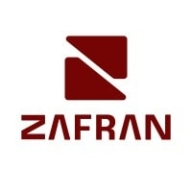


Check Point CloudGuard CNAPP and Google Kubernetes Engine are competitors in the cloud management and security sector. Google Kubernetes Engine appears to have an edge with its strong focus on containerization and integration within the Google ecosystem, which streamlines deployments and workloads.
Features: Check Point CloudGuard CNAPP's standout features include centralized firewall management, compliance integration, and auto-remediation, making it comprehensive for cloud security management. The IAM role control provides detailed access management. Google Kubernetes Engine focuses on containerization with automatic scaling, load balancing, and seamless integration with Google services like BigQuery and VertexAI, facilitating easy cluster management.
Room for Improvement: Check Point CloudGuard CNAPP needs better integration with third-party tools, improved documentation, and customizable options to decrease false positives. Google Kubernetes Engine requires enhanced monitoring, better documentation, and application-level security, as well as greater support for integrating non-Google platforms.
Ease of Deployment and Customer Service: Check Point CloudGuard CNAPP supports public, private, and hybrid clouds but could improve response times and technical expertise in customer service. Google Kubernetes Engine’s simple deployment and management are praised, though customer service has mixed reviews, especially for complex issues.
Pricing and ROI: Check Point CloudGuard CNAPP's asset-based pricing may become costly as environments expand, yet users appreciate the ROI from increased security. Google Kubernetes Engine offers a pay-as-you-go model, making it cost-effective for resource usage, though potentially expensive for high-redundancy needs due to compute resource costs.
| Product | Market Share (%) |
|---|---|
| Check Point CloudGuard CNAPP | 1.5% |
| Wiz | 10.8% |
| Tenable Nessus | 8.0% |
| Other | 79.7% |
| Product | Market Share (%) |
|---|---|
| Google Kubernetes Engine | 2.2% |
| Red Hat OpenShift Container Platform | 19.7% |
| VMware Tanzu Platform | 12.1% |
| Other | 66.0% |



| Company Size | Count |
|---|---|
| Small Business | 54 |
| Midsize Enterprise | 17 |
| Large Enterprise | 57 |
| Company Size | Count |
|---|---|
| Small Business | 20 |
| Midsize Enterprise | 6 |
| Large Enterprise | 15 |
Zafran Security integrates with existing security tools to identify and mitigate vulnerabilities effectively, proving that most critical vulnerabilities are not exploitable, optimizing threat management.
Zafran Security introduces an innovative operating model for managing security threats and vulnerabilities. By leveraging the threat exposure management platform, it pinpoints and prioritizes exploitable vulnerabilities, reducing risk through immediate remediation. This platform enhances your hybrid cloud security by normalizing vulnerability signals and integrating specific IT context data, such as CVE runtime presence and internet asset reachability, into its analysis. No longer reliant on patch windows, Zafran Security allows you to manage risks actively.
What are the key features of Zafran Security?
What benefits can users expect from Zafran Security?
In industries where security is paramount, such as finance and healthcare, Zafran Security provides invaluable protection by ensuring that only exploitable vulnerabilities are addressed. It allows entities to maintain robust security measures while allocating resources efficiently, fitting seamlessly into existing security strategies.
Check Point CloudGuard CNAPP offers comprehensive cloud security with features like dynamic access control, asset protection, and compliance checks, tailored for organizations seeking enhanced governance across AWS, Azure, and GCP platforms.
Check Point CloudGuard CNAPP provides robust capabilities, including centralized firewall management, IAM scanning, and real-time visibility. Its strengths lie in predictive visualization, threat intelligence, and auto-remediation, making it a valuable tool for risk mitigation and compliance management. The platform's integration and responsiveness enhance cloud security, ensuring alignment with industry standards and effective threat protection.
What are the key features of Check Point CloudGuard CNAPP?Organizations in finance, healthcare, and retail frequently implement Check Point CloudGuard CNAPP for compliance and security across cloud environments. It assists with workload protection, threat detection, and regulatory obligation fulfillment, proving effective for securing applications and monitoring API interactions.
Kubernetes Engine is a managed, production-ready environment for deploying containerized applications. It brings our latest innovations in developer productivity, resource efficiency, automated operations, and open source flexibility to accelerate your time to market.
We monitor all Vulnerability Management reviews to prevent fraudulent reviews and keep review quality high. We do not post reviews by company employees or direct competitors. We validate each review for authenticity via cross-reference with LinkedIn, and personal follow-up with the reviewer when necessary.